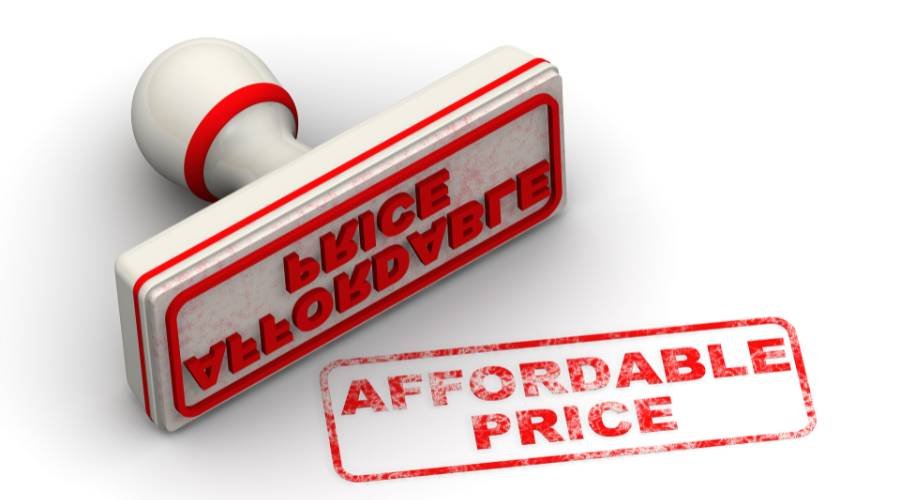In today’s digital landscape, effective search engine optimization (SEO) has become a crucial aspect of hotel marketing. By implementing strategic SEO practices, hotels can enhance their online visibility, attract more prospective guests, and ultimately drive increased direct bookings. This section will explore the top SEO strategies that hoteliers can leverage to optimize their website and capture the attention of travelers searching for the perfect accommodation.
The hospitality industry is highly competitive, and hotels must continuously adapt to the evolving search engine algorithms and user preferences. By understanding the fundamentals of hotel SEO and staying up-to-date with the latest best practices, hotel owners and marketing teams can position their properties for success in the digital landscape.
Key Takeaways on Hotel SEO Strategies
- Explore the core components of effective hotel SEO strategies
- Understand the importance of SEO in the hospitality industry and its impact on bookings
- Identify the key performance indicators (KPIs) to measure the success of hotel SEO efforts
- Discover how to conduct comprehensive keyword research to target the right audience
- Learn techniques for optimizing your hotel’s website structure and content for search engines

Understanding the Fundamentals of Hotel SEO Strategies
Hotel SEO strategies are the crucial foundation for enhancing your hotel’s online visibility and driving more bookings. At the core of effective hotel search engine optimization lie several key components that work together to improve your hotel website’s search engine rankings and attract the right guests.
Core Components of Hotel Search Engine Optimization
Successful hotel SEO requires a holistic approach that addresses several crucial elements, including:
- Comprehensive keyword research to identify the most relevant and high-intent search queries
- Optimizing your hotel website’s structure, content, and technical aspects to align with search engine algorithms
- Leveraging local SEO tactics to enhance your hotel’s visibility in location-based searches
- Building a strong backlink profile through strategic partnerships and content collaborations
Why SEO Matters in the Hospitality Industry
In the highly competitive hospitality industry, hotel SEO strategies play a pivotal role in ensuring your property stands out among the countless options available to potential guests. By optimizing your online presence, you can capture the attention of travelers actively searching for their ideal hotel, ultimately boosting your hotel website optimization and driving more direct bookings. In today’s digital age, having a strong online presence is crucial for the hospitality industry. With travelers increasingly turning to the internet to research and book accommodations, understanding the ins and outs of SEO—specifically hotel SEO—becomes essential. By optimizing your website for search engines, you can capture the attention of potential guests who are actively searching for their ideal hotel. This not only enhances your visibility but also drives more direct bookings, minimizing reliance on third-party platforms that often charge hefty commissions.
One of the foundational elements of effective hotel SEO is conducting regular hotel SEO audits. These audits help identify areas where your website can improve in terms of loading speed, mobile usability, and keyword optimization, ensuring a seamless user experience for visitors. By addressing the findings of your audit, you can enhance your website’s performance and increase its chances of ranking higher in search engine results. This means that more travelers will discover your hotel when searching for accommodations in your area.
Moreover, employing the right hotel SEO tools can facilitate your optimization efforts. These tools can provide valuable insights into keyword research, competitor analysis, and content recommendations, allowing you to strategically position your hotel in the market. For instance, understanding which keywords travelers use to search for hotels can help you tailor your content to align with what potential guests are looking for, further enhancing your online presence. Additionally, focusing on hotel technical SEO aspects, such as structured data and site hierarchy, helps search engines effectively crawl and index your site, leading to improved visibility.
Ultimately, investing in SEO in the hospitality industry is not just about improving visibility; it’s about creating a competitive edge. By optimizing your website with targeted strategies like hotel SEO audits, utilizing effective hotel SEO tools, and focusing on technical SEO, you can not only attract more visitors but also transform that interest into tangible bookings. In a landscape where the competition is fierce, leveraging SEO effectively can make all the difference between visitors choosing your hotel over others.
Key Performance Indicators for Hotel SEO
To measure the success of your hotel SEO efforts, it’s essential to monitor a range of key performance indicators (KPIs), such as:
- Organic search traffic and visibility
- Conversion rates from organic search
- Rankings for target keywords
- Backlink profile and domain authority
- Local SEO metrics, including Google Business Profile performance
By closely tracking these KPIs, you can gain valuable insights into the effectiveness of your hotel website optimization strategies and make data-driven decisions to continuously improve your hotel’s online performance.
| Key Performance Indicator | Metric |
|---|---|
| Organic Search Traffic | Monthly or quarterly website visits from organic search |
| Conversion Rate | Percentage of organic search visitors who complete a desired action (e.g., booking a stay) |
| Keyword Rankings | Position of your hotel’s website in search engine results for target keywords |
| Backlink Profile | Number and quality of referring domains linking to your hotel’s website |
| Google Business Profile | Review ratings, customer engagement, and other local SEO metrics |
Conducting Comprehensive Hotel Keyword Research
When it comes to hotel SEO strategies, one of the most crucial steps is conducting thorough hotel keyword research. By identifying the right search terms and phrases that potential guests use when looking for accommodations, hotels can effectively optimize their online presence and attract more bookings.
To start, it’s essential to understand the different types of keywords that are relevant to the hotel industry. These include:
- Location-based keywords (e.g., “hotels in New York City”)
- Amenity-focused keywords (e.g., “hotels with spa”, “hotels with pool”)
- Price-related keywords (e.g., “cheap hotels”, “luxury hotels”)
- Brand or property-specific keywords (e.g., “Hilton hotel”, “Marriott resort”)
To conduct effective hotel keyword research, hoteliers can leverage a variety of tools and techniques, such as:
- Utilizing online keyword research tools (e.g., Google Keyword Planner, SEMrush, Ahrefs) to uncover the search volume and competition for different keywords
- Analyzing the keywords used by competitors in their online content and paid advertising campaigns
- Gathering feedback from guests, both through surveys and by monitoring online reviews, to understand the language and terms they use when searching for hotels
- Conducting user testing and A/B testing on website content to identify the most effective keywords and phrases
By incorporating these hotel keyword research strategies into their overall hotel SEO strategies, hoteliers can optimize their online presence, improve their search engine rankings, and ultimately drive more bookings and revenue for their properties.
Optimizing Your Hotel Website Structure for Search Engines
In today’s digital landscape, the structure of your hotel website plays a crucial role in its visibility and performance on search engine results pages. By focusing on hotel website optimization and hotel on-page SEO, you can ensure your property stands out and attracts more potential guests.
Mobile-First Design Implementation
With the increasing prevalence of mobile device usage, it’s essential to adopt a mobile-first approach when designing your hotel website. This means prioritizing the user experience on smaller screens, ensuring seamless navigation, and optimizing content for easy consumption on the go.
Site Speed Optimization Techniques
Site speed is a critical factor in search engine rankings and user engagement. Implement best practices such as image optimization, code minification, and content delivery network (CDN) integration to ensure your hotel website loads quickly and efficiently, providing a positive user experience.
URL Structure and Navigation Best Practices
- Utilize clear and descriptive URL structures that accurately reflect the content and hierarchy of your website.
- Implement a user-friendly navigation menu that allows visitors to easily find the information they need, such as room types, amenities, and local attractions.
- Ensure your website’s internal linking structure is well-organized, guiding users through your content and enhancing search engine crawlability.
By focusing on these key aspects of hotel website optimization, you can create a search engine-friendly and user-centric online presence that drives more hotel bookings and increases your property’s visibility in the competitive hospitality industry.
Creating Compelling Hotel Content Marketing Strategies
In the competitive world of hotel bookings, a robust content marketing strategy can be the key to standing out and attracting potential guests. By crafting engaging, informative, and visually appealing content, hotels can not only improve their search engine rankings but also foster a stronger connection with their target audience.
Effective hotel content marketing begins with understanding your guests’ needs and preferences. Conduct thorough market research to identify the topics and content formats that resonate most with your audience. From blog posts that showcase local attractions to destination guides that inspire wanderlust, the content you create should provide genuine value to your readers.
Leverage the power of visual content to captivate and engage your audience. High-quality photos, videos, and even virtual tours can bring your hotel’s amenities and surroundings to life, helping potential guests envision themselves as part of the experience. By optimizing this visual content for hotel SEO strategies, you can boost your online visibility and drive more bookings.
Consistency is crucial when it comes to content marketing. Maintain a regular publishing schedule to keep your audience engaged and demonstrate your expertise in the hospitality industry. Experiment with different content formats, distribution channels, and promotion tactics to determine what resonates best with your target market.
Remember, great content is not just about attracting new guests – it’s also about building long-term loyalty. Encourage your audience to share and interact with your content, fostering a sense of community and increasing the reach of your hotel content marketing efforts.
By prioritizing quality, relevance, and consistency in your content marketing strategies, you can elevate your hotel’s online presence, drive more bookings, and establish your brand as a trusted authority in the hospitality industry.

Local SEO Tactics for Hotels and Properties
In the competitive world of hospitality, hotel local SEO strategies play a crucial role in attracting nearby guests and driving bookings. By optimizing your online presence for local search, you can enhance your hotel’s visibility and reach potential customers within your geographic vicinity.
Google Business Profile Optimization
Ensuring your hotel’s Google Business Profile is accurately and thoroughly filled out is a fundamental local SEO tactic. Provide detailed information about your property, including location, contact details, amenities, and high-quality imagery. Regularly update your profile to keep it fresh and engage with customer reviews to build trust and credibility.
Local Citation Building
Consistent and accurate local citations, such as listings on online directories, review sites, and industry-specific platforms, can significantly boost your hotel’s local SEO. Identify and claim your hotel’s listings across relevant platforms, ensuring your NAP (name, address, phone number) information is consistent across all citations.
Managing Local Reviews and Ratings
Online reviews and ratings play a vital role in a hotel’s local SEO performance. Actively encourage guests to leave reviews, and promptly respond to both positive and negative feedback. Monitoring and managing your hotel’s online reputation can positively impact your search engine visibility and build trust with potential customers.
| Local SEO Tactic | Benefits |
|---|---|
| Google Business Profile Optimization | Increased visibility, improved online presence, enhanced credibility |
| Local Citation Building | Improved search engine rankings, increased online visibility, better brand recognition |
| Managing Local Reviews and Ratings | Builds trust with potential customers, positive impact on search engine rankings, enhanced reputation |
By implementing these local SEO tactics, hotels and properties can effectively enhance their online presence, attract nearby guests, and ultimately boost their bookings and revenue.
Technical SEO Implementation for Hotel Websites
As hotel owners and marketers strive to optimize their online presence, technical hotel SEO plays a crucial role in driving increased bookings and website traffic. By focusing on the underlying technical elements of their hotel websites, hoteliers can enhance their visibility and ranking in search engine results, ultimately attracting more potential guests.
One of the key technical aspects to consider is the site architecture. A well-designed and intuitive site structure not only improves the user experience but also helps search engines navigate and index the website more effectively. Implementing a clear navigation hierarchy, utilizing appropriate URL structures, and ensuring seamless internal linking can all contribute to better hotel website optimization.
Another important technical element is the XML sitemap. This file provides search engines with a comprehensive overview of the hotel’s website, helping them understand the website’s content and structure. By regularly updating the XML sitemap, hoteliers can ensure that all their web pages are effectively crawled and indexed, increasing the chances of higher search engine rankings.
Additionally, optimizing the robots.txt file is crucial for technical hotel SEO. This file communicates with search engine bots, instructing them on which pages to crawl and index, and which to exclude. By carefully crafting the robots.txt file, hoteliers can prevent search engines from accessing irrelevant or duplicate content, ensuring that their most valuable pages are prioritized.
Finally, the implementation of HTTPS (Hypertext Transfer Protocol Secure) is a must-have for any modern hotel website. This secure protocol not only enhances the user’s trust and confidence but also serves as a ranking signal for search engines. By migrating to HTTPS, hotel owners can demonstrate their commitment to data privacy and security, further improving their hotel website optimization efforts.
By addressing these technical SEO elements, hotel owners and marketers can position their websites for greater success in the highly competitive online landscape, ultimately driving more bookings and revenue for their properties.
Building Quality Backlinks for Your Hotel Website
In the highly competitive world of hotel bookings, building a strong online presence through strategic link building is crucial. Quality backlinks not only boost your hotel’s domain authority but also drive targeted traffic and improve search engine rankings. Let’s explore the key tactics to build these valuable links.
Partnership Opportunities and Link Building
Cultivating strategic partnerships with complementary businesses can open the door to high-quality link-building. Collaborate with local attractions, restaurants, or travel-related services to create mutually beneficial content and co-marketing initiatives. This can lead to guest posts, co-authored blog articles, and reciprocal link placements, all of which enhance your hotel’s online visibility.
Guest Posting and Content Collaboration
Engaging in guest posting on industry-relevant websites is a time-tested tactic for acquiring authoritative backlinks. Identify influential travel blogs, hotel industry publications, or destination-focused platforms and pitch your expertise in the form of guest articles. This not only exposes your hotel to a new audience but also secures a valuable backlink from a reputable source.
Industry Directory Submissions
Claiming and optimizing your hotel’s listings on relevant industry directories can also contribute to your link-building strategy. Directories such as TripAdvisor, Yelp, and Google Business Profile provide high-domain authority backlinks and help improve your hotel’s local SEO visibility. Be sure to keep your directory listings up-to-date and consistent with your website’s information.
By leveraging these hotel link-building and SEO strategies, you can steadily build a network of quality backlinks that strengthen your online presence and drive more bookings through search engine optimization.
Measuring and Analyzing Your Hotel SEO Performance
Optimizing your hotel’s search engine performance is an ongoing process that requires continuous monitoring and analysis. By leveraging essential analytics tools and metrics, you can gain valuable insights into the effectiveness of your SEO strategies and make informed decisions to drive long-term success.
Essential Analytics Tools and Metrics
Utilize comprehensive analytics platforms like Google Analytics, Search Console, and industry-specific hotel analytics solutions to track key performance indicators (KPIs) such as website traffic, organic search visibility, conversion rates, and revenue attribution. These tools provide a wealth of data to help you understand your hotel’s online presence and the impact of your SEO efforts.
ROI Tracking and Reporting
Implement robust ROI tracking mechanisms to measure the financial impact of your hotel SEO initiatives. By correlating website metrics with booking data and revenue, you can demonstrate the true value of your search engine optimization strategies to key stakeholders. Develop detailed reports that showcase the return on investment, allowing you to secure continued support for your hotel SEO initiatives.
Continuous Optimization Strategies
Embrace a culture of continuous improvement by regularly reviewing your hotel SEO performance, identifying areas for growth, and implementing data-driven optimization strategies. Conduct ongoing hotel SEO audits, monitor industry trends, and continuously refine your content, technical, and off-site optimization efforts to maintain a competitive edge in the evolving digital landscape.
FAQ
What are the core components of hotel SEO strategies?
The core components of hotel SEO strategies include keyword research, website optimization, content marketing, local SEO, technical SEO, and link building. These elements work together to improve a hotel’s online visibility and drive more direct bookings.
Why is SEO important for the hospitality industry?
SEO is crucial for hotels as it helps them increase their online presence and reach potential guests who are searching for accommodations. By optimizing their website and online content, hotels can improve their search engine rankings, attract more website visitors, and ultimately drive more direct bookings.
What are the key performance indicators (KPIs) for measuring hotel SEO success?
Some of the key performance indicators for measuring hotel SEO success include organic search traffic, website conversions (e.g., direct bookings), keyword rankings, domain authority, and local pack visibility. Tracking these metrics can help hotels understand the impact of their SEO efforts and make data-driven decisions.
How can hotels conduct effective keyword research?
Effective hotel keyword research involves identifying the search terms and phrases that potential guests use when looking for accommodations, both in the local area and nationally. This can be done using keyword research tools, analyzing competitor data, and understanding the intent behind different search queries.
What are some best practices for optimizing hotel website structure?
Best practices for optimizing hotel website structure include implementing a mobile-first design, improving site speed, using a clear and intuitive URL structure, and ensuring effective navigation. These elements contribute to a user-friendly and search-engine-friendly website that can improve search rankings and conversions.
How can hotels leverage content marketing to boost their SEO?
Hotels can leverage content marketing by creating engaging and informative blog posts, destination guides, and visual content that caters to the interests of their target audience. This type of content not only attracts potential guests but also helps improve a hotel’s search engine rankings through the creation of valuable, shareable, and linkable assets.
What local SEO tactics are important for hotels?
Key local SEO tactics for hotels include optimizing their Google Business Profile, building local citations (mentions of the hotel’s name, address, and phone number on other websites), and actively managing online reviews and ratings. These strategies help hotels improve their visibility in local search results and attract guests in their immediate vicinity.
What technical SEO elements are crucial for hotel websites?
Important technical SEO elements for hotel websites include a well-structured site architecture, the implementation of XML sitemaps, optimizing the robots.txt file, and ensuring the website is secured with HTTPS. These technical aspects contribute to a more search-engine-friendly website that can positively impact search rankings.
How can hotels build high-quality backlinks?
Hotels can build high-quality backlinks through various strategies, such as forming partnerships with relevant industry websites, guest posting on authoritative blogs, and submitting their hotel information to reputable industry directories. These link-building tactics help improve a hotel’s domain authority and search visibility.
What tools and metrics should hotels use to measure their SEO performance?
Hotels should leverage tools such as Google Analytics, Google Search Console, and various SEO analytics platforms to track metrics like organic search traffic, conversion rates, keyword rankings, and local pack visibility. Regularly monitoring these KPIs and making data-driven optimizations can help hotels continuously improve their SEO performance.




